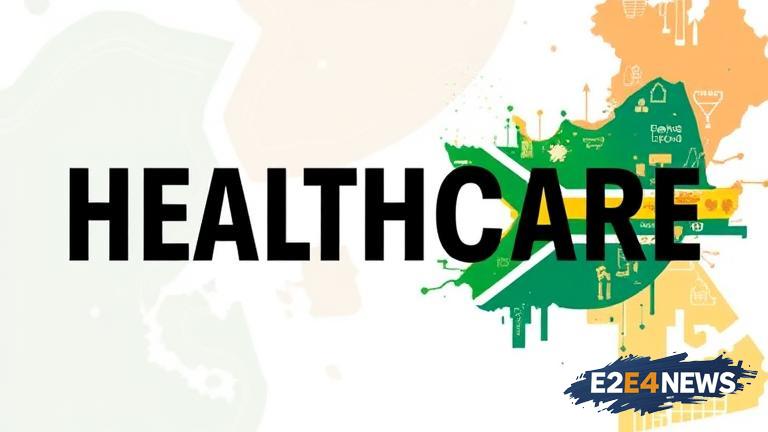The South African health system is facing numerous challenges, including a shortage of medical professionals, inadequate infrastructure, and inefficient systems. To address these challenges, the country is investing in digital health technologies to improve patient care and outcomes. A solid digital foundation is essential for the successful implementation of these technologies. This foundation includes a robust and secure IT infrastructure, reliable data management systems, and effective cybersecurity measures. The digital foundation will enable the integration of various healthcare systems, including electronic health records, telemedicine, and mobile health applications. This integration will facilitate the sharing of patient data, improve communication between healthcare providers, and enhance patient engagement. Furthermore, the digital foundation will support the use of advanced analytics and artificial intelligence to analyze patient data, identify trends, and predict outcomes. The South African government has launched several initiatives to promote the adoption of digital health technologies, including the development of a national eHealth strategy. The strategy aims to improve the quality and accessibility of healthcare services, reduce costs, and enhance patient satisfaction. To achieve these goals, the government is investing in the development of digital health infrastructure, including the creation of a national health data warehouse. The warehouse will store patient data, track health trends, and provide insights for healthcare planning and policy development. Additionally, the government is promoting the use of telemedicine to expand access to healthcare services, particularly in rural and underserved areas. Telemedicine will enable patients to consult with healthcare professionals remotely, reducing the need for hospital visits and improving health outcomes. The adoption of digital health technologies is also expected to improve the management of chronic diseases, such as diabetes and hypertension. Patients will be able to monitor their condition remotely, receive personalized advice, and adjust their treatment plans accordingly. Moreover, digital health technologies will enable healthcare providers to track patient outcomes, identify areas for improvement, and develop targeted interventions. The use of mobile health applications will also empower patients to take a more active role in their healthcare, enabling them to track their vital signs, monitor their medication, and access health information. However, the adoption of digital health technologies also poses several challenges, including the need for significant investment in IT infrastructure, the risk of cyber attacks, and the potential for data breaches. To address these challenges, the government is working with private sector partners to develop secure and reliable digital health systems. The partnership will enable the sharing of best practices, the development of common standards, and the creation of a supportive ecosystem for digital health innovation. In conclusion, building a solid digital foundation is crucial for the successful implementation of digital health technologies in South Africa’s health system. The foundation will enable the integration of various healthcare systems, support the use of advanced analytics and artificial intelligence, and improve patient care and outcomes. With the government’s commitment to digital health and the support of private sector partners, South Africa is poised to revolutionize its health system and improve the lives of its citizens.
